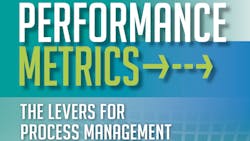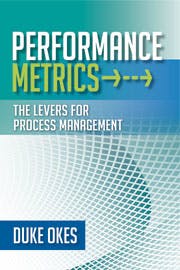"Frustrating" is the word Duke Okes uses to describe his reaction to the question, "What performance measures should I use?" The author of "Performance Metrics: The Levers for Process Improvement" doesn't get frustrated because it is a bad question to ask, but because it should never be the first question you ask, and the answer always is "It depends."
See Also: Operations Management Strategy & Best Practices It depends, he says, on what you are trying to accomplish. "Ask 'What is the direction I am trying to go in? What is the mission and strategy of my department or operation?'" he says. "What you measure will be determined by the answers to [those questions]." With "Performance Metrics" (2013, Quality Press), Okes focuses not on high-level metrics, such as revenue or profit -- "most organizations have those" -- but on the lower-level metrics that drive the high-level outcomes.About the Author
Jill Jusko
Bio: Jill Jusko is executive editor for IndustryWeek. She has been writing about manufacturing operations leadership for more than 20 years. Her coverage spotlights companies that are in pursuit of world-class results in quality, productivity, cost and other benchmarks by implementing the latest continuous improvement and lean/Six-Sigma strategies. Jill also coordinates IndustryWeek’s Best Plants Awards Program, which annually salutes the leading manufacturing facilities in North America.
Have a story idea? Send it to [email protected].


